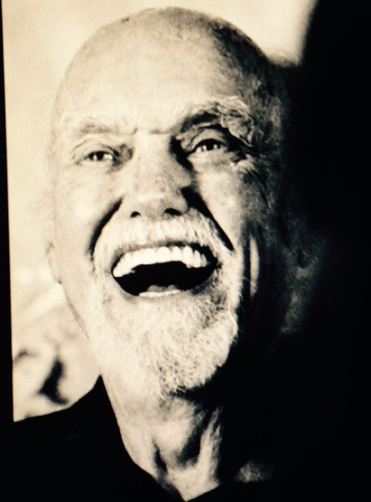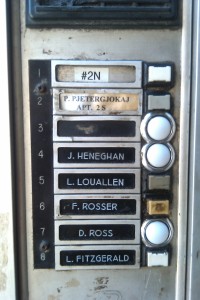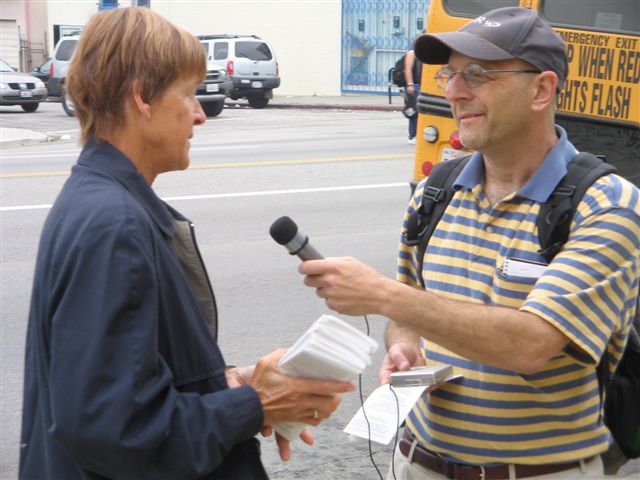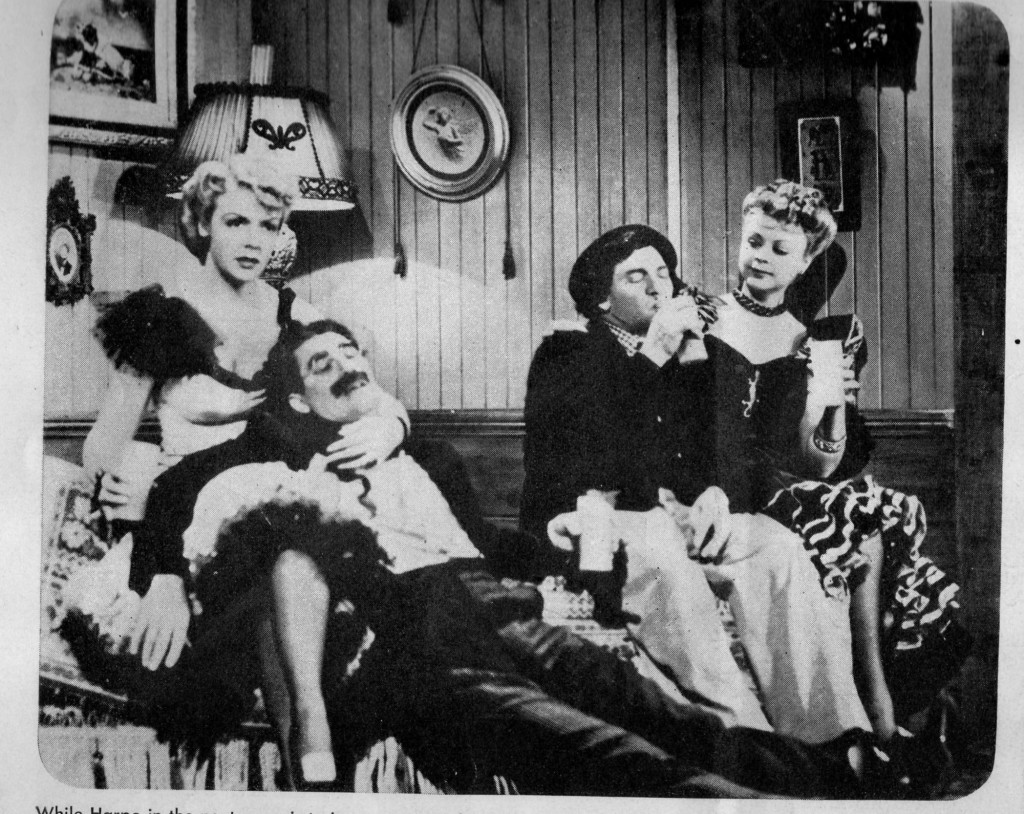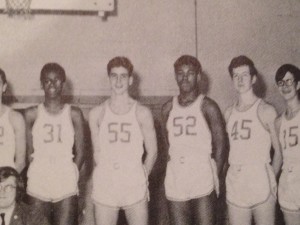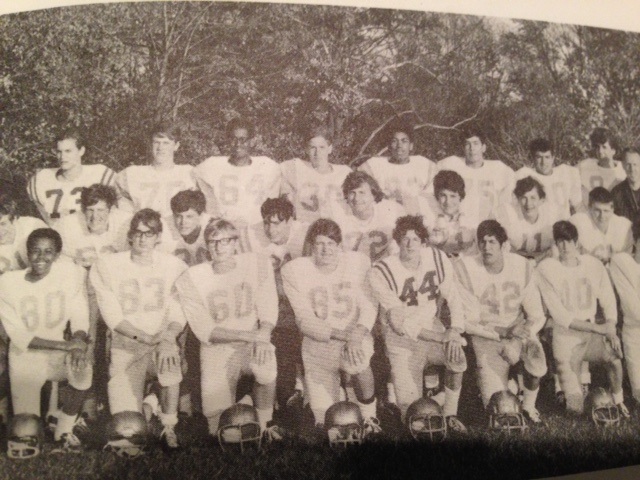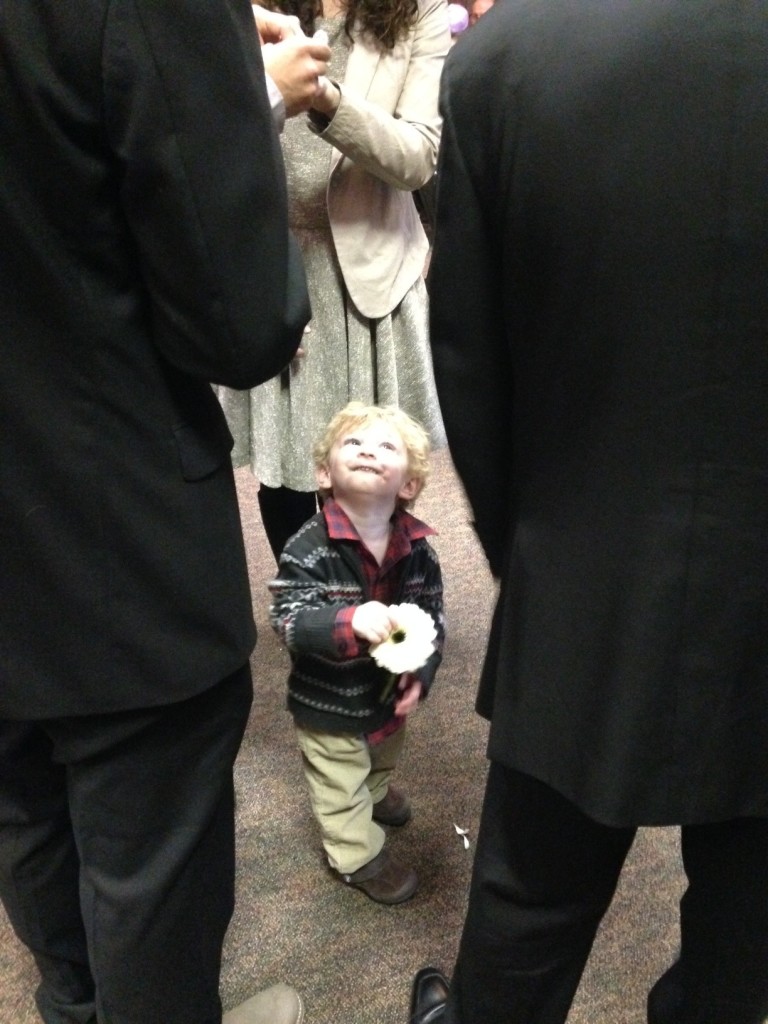
I long
To hear the story of your life, which must
Take the ear strangely.
Alonso to Prospero in Shakespeare’s The Tempest
Seeking an enlightening conversation?
Talk to the deaf.
Take my niece Liz, who works at Gallaudet University in Washington D.C.* Recently, she taught me that speaking in ASL – American Sign Language— can bring forth better conversations onto this earth. How do the deaf do it? And do they do it better?
“Well not necessarily better,” Liz explains, “but it’s a different way of conversing.”
But don’t the deaf miss mucho el converso when they don’t hear any of it?
For the following conversation, we aren’t using ASL; Liz reads my lips and I understand her speech, being in the same family for 30 years…
HANK: How different is this conversation?
LIZ: While I talk, you are hearing everything going on around us. 360 degrees. While you talk, deaf folks listen by looking. I can’t look away.
HANK: How about when two deaf conversationalists use ASL to communicate?
LIZ: The person who signs doesn’t have to look directly when conversing. But the person paying attention has to look at the signer to understand. This is a more direct and more effective way to communicate.
HANK: More direct. Why do you think so?
LIZ: Because it takes more of an attention span to look the whole time. Deaf speakers are more comfortable with eye contact.
HANK: Sometimes it is too much for me to look so long into someone’s eyes.
LIZ: I know! Hearing people get like, “Stop staring at me!”
[Laughter]
HANK: The deaf don’t stare?
LIZ: They’re paying attention. They convey information by the way they look at each other, with facial expressions.
HANK: Your convo has more info because of facial expressions?
LIZ: A hearing person can use the inflection of their voice to convey certain emotions –excitement, sadness, fear. A deaf person on the other hand – I have to tell you visually: I AM SO ANNOYED! Or just pissed off.
HE: It’s much more in your face.
LIZ: Yes. Another thing is, sometimes with a hearing person who is dull, the words come out all – the – same.
HANK: So the deaf are really the most un-robot-like of all conversationalists.
LIZ: I don’t know about that….
Awkward And Semi-awkward Silences
HANK: What about silence? Are deaf folks more comfortable with them?
LIZ: No, we’re the same. There’s no difference.
[Silence]
HANK: What other differences are there?
LIZ: Deaf culture is much more information-centered.
HANK: Give me an example.
LIZ: A hearing friend says: “Look over there.” But “over there” means what?
HANK: Look there?
LIZ: “Look, look!” they’ll say. But that’s not specific enough. And I’ll say, “That’s not helping me. What is over there? A bird, the sky?”
HANK: Superman?
[Laughter]
LIZ: Deaf speakers offer more information: “Look at that tree, how red the leaves are. Look.” We’re used to a more direct way of explaining things. Sometimes with a hearing person, things get so vague.
HANK: Deaf conversation is fuller in a way?
LIZ: Well, I miss the nuanced clues. I can see what’s going on, but you know more than I do. You have the information about the red bird: Please explain more to me!
HANK: What about talking in a group of people? Like at a meeting or a party?
LIZ: In most groups, there is “turn taking.” Talkers take turns while others listen. A deaf conversation has much more turn taking. It is a requirement, because you can’t all be signing at the same time; everybody will get lost. When one person talks, everyone looks at that person. That’s how it works.
Tips For The ASL-impaired Conversationalist
HANK: What else can I learn about conversing?
LIZ: Slow down. Exercise your facial expressions. Move your hands and don’t be afraid to point things out.
HANK: Sign language seems such a wonderful way to conversate.
LIZ: I don’t know that word “conversate,” but ASL can be taught right from birth. It is a part of the connection between parent and child. Babies want to communicate. They can be taught the sign for “milk” which is the baby squeezing their hand. So this is before they ever say in English, “I want milk.”
HANK: I love that!
LIZ: And look, it can serve you your whole life. Think of this: if you are across a room, you don’t have to scream. You can just sign!
* * *
QUESTIONS
With blind folks, everyone seems to want to help. But with deaf people, are hearing people scared to even speak? Is there a fear of the deaf?
As early adopters of technology — from Blackberry to Sidekick to FaceTime, Skype, etc — what’s next? Liz suggests: Virtual interpreters, avatars there anytime you need translation, some kind of captioning on your eyeglasses so you can understand in real time whatever information is coming your way.
So what do you see coming after that? Liz answers: “Beam me up!”
ACTIVITY
Be more visual by using facial expression.
Provide more context when pointing something out, get more comfortable with your hands.
Don’t be afraid to point.
Maintain eye contact.
Slow down.
And if you are still struggling to communicate?
My niece suggests: Relax.
“I’m shy too,” Liz says. “Remember that nothing is perfect and it’s okay to ask questions. It’s really okay to say: I did not get that. Can you say it again? It’s a drag when someone goes yeah yeah yeah and I know they aren’t getting it. I wanna slap them in the face.”
Between now and now, between I am and you are, the word bridge. Entering it you enter yourself: the world connects and closes like a ring. From one bank to another, there is always a body stretched: a rainbow. I’ll sleep beneath its arches.
Octavio Paz, The Bridge
Thought is free.
The Tempest
Have compassion for everyone you meet,
even if they don’t want it. What seems conceit,
bad manners, or cynicism is always a sign
of things no ears have heard, no eyes have seen.
You do not know what wars are going on
down there where the spirit meets the bone.
Miller Williams
http://www.nytimes.com/2015/01/03/arts/miller-williams-laconic-arkansas-poet-dies-at-84.html?_r=0
http://www.arktimes.com/RockCandy/archives/2015/01/02/rip-miller-williams-1930-2015
*Gallaudet University: https://www.gallaudet.edu/about-gallaudet.html

